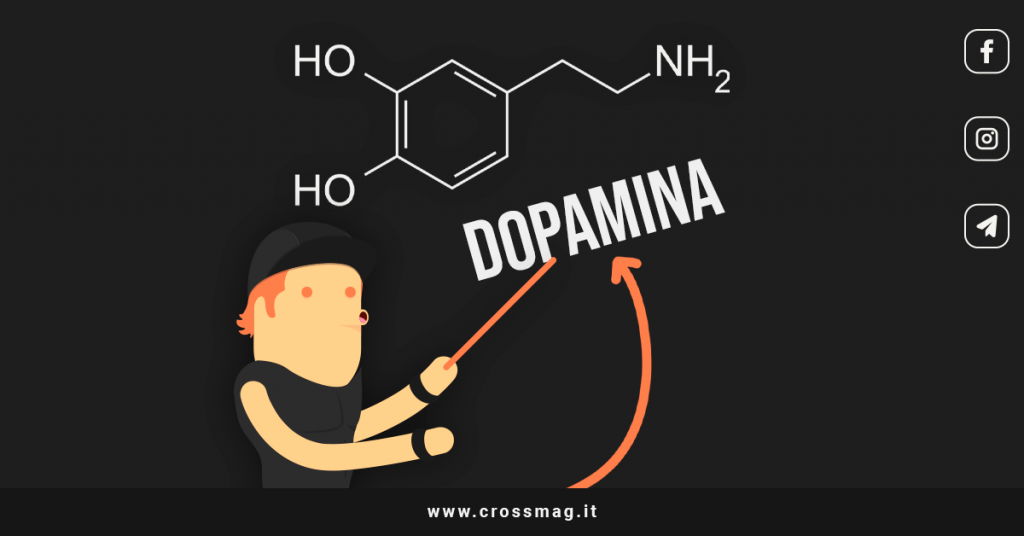La dopamine is a type of neurotransmitter, defined as the "feel good" neurotransmitter, as it plays an important role in how we feel pleasure.
It is also useful in the ability to think and plan, helps us engage, focus and find interesting things, contributes to motor function and mood, and is associated with some motor and psychiatric disorders.
Index
What is dopamine?
La dopamine it's a neurotransmitter produced in the brain; it basically acts as a chemical messenger between nerve cells; it is released when the brain awaits a reward.
When it comes to associating a certain activity with pleasure, simple anticipation may be enough to increase dopamine levels; it creates a kind of cycle of motivation, reward and reinforcement.
It is also involved in many other functions of our body, for example:
- Blood flow
- Digestion
- Executive operation
- Cardiac function
- Kidney function
- Memory and concentration
- Mood and emotions
- Pain control
- Pancreatic function
- Control ofinsulin
- Sleep cycle
- Stress response
Dopamine does not act alone; it works together with other neurotransmitters and hormones, such as serotonin and adrenaline.
How does dopamine make us feel?
The right amount of dopamine usually goes hand in hand with a good mood; it is ideal for learning, planning and productivity. Dopamine contributes to the sensation of:
- Supervision
- Focus
- Motivation
- Happiness
A surge of dopamine can produce temporary feelings of euphoria.
Shortage
A dopamine deficiency is one of the reasons why we may be in a bad mood; in that case we could experience:
- Reduced supervision
- Difficulty concentrating
- Less motivation and enthusiasm
- Poor coordination
- Difficulty moving
Lack of sleep can affect lower dopamine levels, as can some clinical conditions such as: Parkinson's disease, depression, dopamine transporter deficiency syndrome, and childhood dystonia.
Excess
Very high levels of dopamine can make us feel in a great mood, at least for a while; however, there may be side effects, including:
- Feeling of mania
- Hallucinations
- Deliri
This neurotransmitter, if in excess, can play a role in some diseases, such as:
- Obesity
- Addiction
- Schizophrenia
Interactions with other substances
Some drugs and substances can interact with dopamine; alcohol and addictive drugs can, in fact, activate the dopamine cycle.
These substances can trigger a very rapid and intense dopamine burst, which, however, lasts very little and leaves the feeling of wanting more.
When this circle is unleashed, our brain responds by attenuating it and we need that substance more and more to achieve the same level of pleasure.
The overactivation affects the dopamine receptors, causing you to lose interest in other things. This neurotransmitter is not the only risk factor for addictions; environmental and genetic factors also play a crucial role.
And you, did you know this neurotransmitter? Let us know in the comments and remember to follow us on our telegram channel
SUBSCRIBE HERE TO THE TELEGRAM CHANNEL

